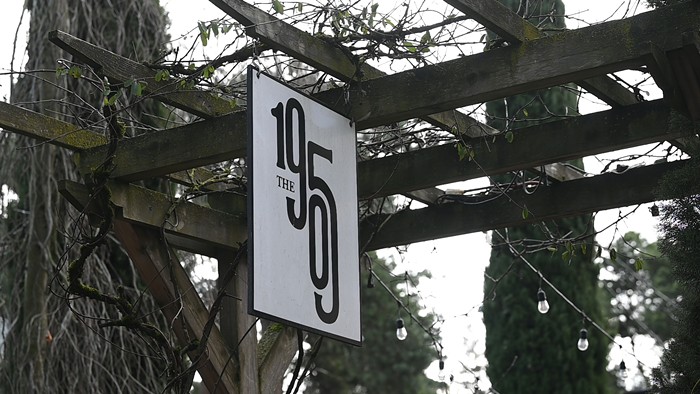TIMOTHY SHOWALTER is a terrific songwriter and musician, but let it also be said that he's a terrific interview.
"I'm a talker," he says. "My dad was a car salesman. My band could probably go on for a long time about how I just never stop talking. I'll be late to a show because I meet somebody at a gas station and just start talking. It's just what my head does."
The gregarious Showalter's lack of filter is what also makes his songs so fucking good. HEAL, the fourth album he's released under the name Strand of Oaks, is an open wound, a brutal examination of an acutely difficult period in his life. "Mirage Year" discusses his wife cheating on him while he was on the road (they're still together); "Shut In" details his tendency to get wasted alone in his Philly home whenever he's not touring; "Goshen 97" revisits his teenage years in Indiana. "I was lonely/but I was having fun," Showalter sings, remembering what it was like to hide alone in the basement, playing air guitar to the Smashing Pumpkins. (Later in the song he sings, "Before I was fat and drunk and mean.")
He's not pulling any punches, and that's what makes HEAL such an astonishing listen—it's difficult, but legitimately cathartic, even for the listener.
"I think the painful process came leading up to making the record," Showalter says, "and the liberating force was actually writing the songs. That's when things started to turn and get better. I was completely out of my mind for a few months writing this record. I was probably sleeping an hour or two a night and waking my wife up in the middle of the night to hear some bad-sounding demo. 'You gotta hear this, I got a new guitar part!' She, like a saint, would just listen to it and be like, 'That's good... this is the eighth time I've heard this song tonight.'
"To be honest, though, making this record was just really easy. Things came together really easily, the songs came pretty easily, there wasn't a lot of debate or editing, and when I finally got to the studio, it went even better. I got to revisit the studio a few weeks ago and I got pretty emotional being in there, being like, 'Damn, we did something amazing here!' I was completely stoned out of my mind the whole time we did it, and it was kind of a new thing for me because I usually don't like to get loaded in the studio, but I think my mind was racing so much... I was actually more focused when I had a little bit of something in me, and was able to not think about the millions of things going on. I could just think about the synthesizer part that I needed to play at that time, and it actually proved pretty useful."
The aptly titled HEAL walks a tightrope between joy and despair, with joy ultimately winning. Showalter tackles the darkness head-on, but each song is a small journey—a process instead of a diary entry that wallows in the rough times that fueled it. Sadness is only one side of HEAL's coin, and Showalter's humor and humanity—so apparent in conversation with him—gradually reveal themselves over the course of the record. In the end, it's a grand-scale rock album of the best kind, where the riffs of J Mascis (who guests on "Goshen 97") sit alongside a quiet tribute to the late Jason Molina ("JM").
Showalter's honesty bleeds off the record. A recent piece in Spin detailed his marital struggles and reliance on alcohol; I ask, with HEAL's high-profile release on the Dead Oceans label, if the greater exposure is something he's comfortable with.
"I decided, especially when it came to making the record, that I wanted to be as honest as possible and not hold anything back," he says. "I just figured that when it came time to share the story with writers and people that were taking the time to talk to me, I didn't want it to then become bullshit. I thought it would be pretty inconsistent and stupid to then hide behind some kind of persona. It was probably more emotional to do some of these interviews than perhaps making the record, but I think it's part of the process—it wasn't finished when the record was finished."
A little later, he clarifies, heart fully on his sleeve, his mission with Strand of Oaks. "I've probably said it somewhere before, but one of my biggest goals is I want to have some small part in destroying bullshit. And destroying irony, and destroying double talk, and the thought of what's 'cool' or whatever."
It's a big claim, but I believe Showalter—passionate, generous, and resolute—is the man for the job.



















